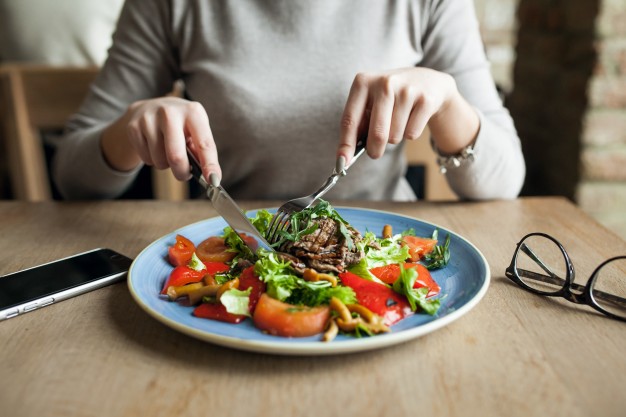Nothing is as satisfying as seeing the food you have worked so hard to cook get quickly consumed by your loved ones. There go the potatoes. All done. And it’s so nice to see your kid polishing off his plate with the last of the buttered pav. But what’s this? Lurking at the bottom of the dish you got as a wedding present is one spoonful of chicken curry. You look up and ask your family if they’ll finish this last teensy weensy bite. But they’re all shaking their heads vehemently, pushing their plates away, looking fit to burst. What do you do? You can’t let it go waste. How horrifying! In goes the spoon, up goes the chicken right into your mouth. Instead of let ting it stay in the dish, you eat it yourself, ignoring the warning your stomach is sending to your brain -that you were done 10 bites ago.
As Indians, we’re culturally ingrained not to waste. We were raised to finish our food and clean our plates. Wasting food was seen as the ultimate sin of excess and an ultimate insult to the preparer of the food who would, more often than not, look wounded as half-empty plates were sent back to the kitchen.
But trying to not waste could be one of the sneakiest ways the weight piles on.
Think about it this way. Let’s assume that you are eating a little bit of leftover food every night to `clean up’ either yours or someone else’s plate. Even if you eat 100 extra calories a day, that’s 36,500 extra calories a year. And if it takes 3,500 extra unburned calories to gain a pound of weight, simply preventing food from going to waste could lead you to gain five kilos over the course of the year. Five kilos. It’s not too late. Prevent waste from going straight to your waist with the help of the WAIST method:
- WAIT
It takes 20 minutes for your stomach to send a signal to your brain that you are full. To prevent overeating, try to stop eating when that feeling of fullness starts.
- ASSESS
Combat the problem of wastage by not cooking too much to begin with. Estimating quantities takes time and practice and a little heartache but there’ll soon be a time when y o u ‘ r e cooking just the right amount.
- IGNORE
Leave someone else’s food alone. If they’ve wasted it, it’s their problem. Not yours.Your meal is done.
- SERVE
Don’t serve yourself too much to begin with. You can always add more later but it’s harder and more tempting -to `not waste’ if you’ve piled on too much food to begin with.
- THINK
Leftovers can provide a fabulous foundation to your next meal and there are always creative ways to tackle them.
And don’t fret. If nothing works, it’s not the end of the world. You’ll just get it right the next time. Both for the food, and for your body.

